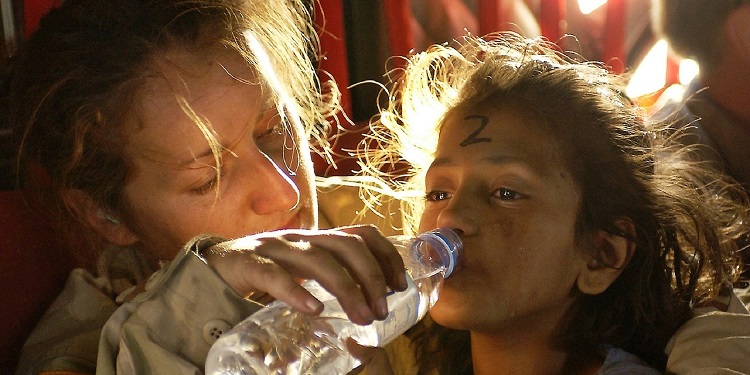Do More Than Asked
The Fellowship | October 30, 2017

Then he ran to the herd and selected a choice, tender calf and gave it to a servant, who hurried to prepare it. He then brought some curds and milk and the calf that had been prepared, and set these before them. While they ate, he stood near them under a tree. — Genesis 18:7–8
The Torah portion for this week is Vayeira, which means “and he appeared,” from Genesis 18:1—22:24, and the Haftorah is from 2 Kings 4:1–37.
I recently learned a powerful lesson from a former Marine and policeman named Jeremy Henwood. Henwood, who had just returned from serving overseas, was shot and killed while sitting in his patrol car. Over a thousand people attended Henwood’s funeral and recalled his many acts of courage and bravery. However, it’s what Henwood did just minutes before being killed that really summed up his life.
The moment was caught on a surveillance camera in a San Diego McDonald’s. Henwood was paying for his meal when a 13-year-old boy asked him if he could borrow 10 cents. Henwood asked the boy what the money was for and the boy explained that he wanted to buy some food for lunch. Henwood replied that he would buy the boy his whole lunch, and he did. He proceeded to ask the boy what he wanted to be when he grew up and encouraged the boy to work hard to achieve his dreams.
Henwood was asked for 10 cents, but he opened his heart and gave so much more. The Jewish sages have an adage, “Say little, do much.” In a world where so many people do the very opposite – they talk up what they plan to do, but then fail to follow through – the sages taught, and Jeremy Henwood showed us, how to do more than what is asked and to do it quietly.
Long before Jeremy Henwood, the sages pointed to Abraham as the shining example of one who said little and did much. In this week’s Torah portion, we read that three angels disguised as humans showed up at Abraham’s tent. Despite having been circumcised just three days earlier, Abraham practically begged the travelers to rest in his tent while he prepared them some food. When the original Hebrew is translated literally, what Abraham said was that he would bring them “some bread.” However, what Abraham actually brought the men was a gourmet meal fit for a king.
Jewish tradition teaches that Abraham served the three men tongue with mustard – a delicacy that required an entire cow to be slaughtered just for the tongue. However, for Abraham, no expense was to be spared when it came to being kind to others. He didn’t speak about it; he didn’t preach about it; he just did it. Actions speak much louder than words.
Today, let’s look for ways to be like Abraham. How might we do more than asked? Can you do more than you are required to do at work? Maybe you can buy a stranger lunch like Jeremy Henwood did. Or perhaps you can shower someone in need with gifts of kindness like Abraham did. Words are cheap, but acts of kindness resonate forever.
